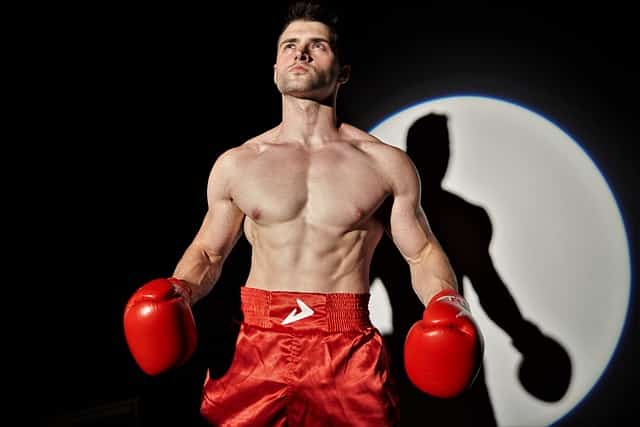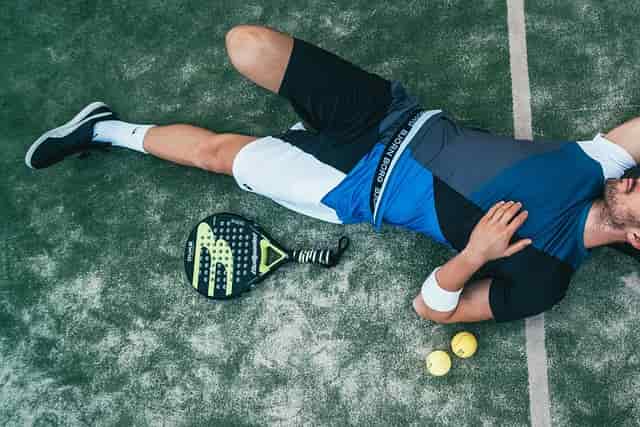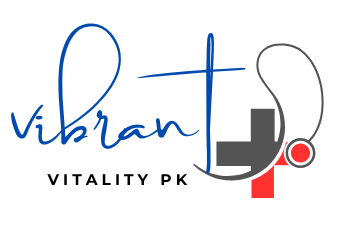REVITALIZE YOUR GAME: 5 SPORTS NUTRITION TIPS FOR MAXIMUM IMPACT
Sports Nutrition

Sports nutrition is an integral component of achieving peak athletic performance and maintaining optimal health for athletes and fitness enthusiasts alike. In the competitive world of sports, where every edge matters, understanding the nuances of sports nutrition can make a significant difference in one’s endurance, strength and overall well being.
Whether you are a professional athlete striving for victory or an active individual looking to enhance your workouts, delaying into the realm of sports nutrition can empower you with the knowledge and strategies to fuel your body effectively, optimize recovery, and unlock your full potential.

So, our prime objective is to ponder on sports nutrition which is considered really important for athlete performance and endurance. The sports nutrition plays a vital role in development of better and healthy life.
Today we’re going to talk about basic sports nutrition tips for your sport, supplements, pre and post activity fuel, hydration, and how to optimize your sports nutrition to prevent injury and to improve your injury for a quicker recovery.
Supplements
Supplements are any pill, liquid or powder form of amino acids, vitamins, minerals, herbs, botanicals or proteins. Substances are actually not regulated by the FDA and they can contain banned substances that can hinder your performance and your health.
Anything that is marketed by supplements to help improve performance can actually be achieved by a well-balanced diet. Make sure you get enough protein, vitamins, minerals, whole grains, and this will meet all of your daily requirements for energy, vitamins, and minerals.
Remember; don’t take a supplement just because your teammates, friends, or your sports idol is taking one. That doesn’t mean it’s going to help your performance. Ideal sports nutrition is mandatory for a sportsman.
It can actually make you ineligible for competition. Always seek medical advice if you’re interested in taking a supplement and consider what you can change in your diet to actually meet your daily requirements for what you’re looking for.
Nutrition
You need fuel for your body to perform at its highest level. If you’re not eating or if you haven’t eaten prior to your exercise, you’re not going to have the fuel that you need in order to perform.
Today, we’re going to talk about the timing and what you should be eating before working out. The preferred fuel for your brain and one of your muscles favorite fuels is from carbohydrates in the form of glucose. So, there are two different types of carbohydrates you should consider eating prior to exercising.
There’s simple and there’s complex carbs. Simple carbohydrates are things like fruit juices, honey, and crackers. This fuel is broken down by your body quickly and can be used as a form of quick energy prior to exercise. Complex carbohydrates are things that take a little bit longer to be broken down but provide you with a little bit longer lasting energy as a result.
These are things like whole grains and vegetables and fruits. Let’s talk about eating and how long you should be waiting to eat prior to exercise. If you have plenty of time and you want to eat a full meal, you should do this, 3 to 4 hours prior to exercise. In that, 3 to 4 hours prior, you should try to have a full meal that contains a lot of complex carbohydrates.
So, a lot of whole grains, fruits and vegetables. This should be the primary source of fuel at this meal.
You should also have a little bit of protein and a little bit of fats. So that way you’re satiated and still feel full by the time the competition comes around. If you only have 1 to 2 hours prior to exercise, you should try to consider eating something with a mix of complex and simple carbohydrates.
This would be something like peanut butter and banana sandwich with honey. This provides you with the complex carbs in the form of whole grain bread and in the banana, but also some simple carbs in the honey.
If you have less than an hour prior exercise and you want to eat something, you should try to stick to mainly simple carbs. So that would be something like a piece of fruit, a granola bar or some applesauce. This will provide you with quick energy and wouldn’t take away energy from you in terms of digestion.
Remember, digestion takes a lot of time and energy. So, if you have less than an hour prior to exercise and you want to eat, try to stick to mainly simple carbohydrates. That would be something like granola bar, a piece of fruit or applesauce. This would be a great way to get yourself some simple and easy to digest energy and fuel for your competition.
Post Activity Nutrition
Now we’ve talked about what to do before your practice or match or game, now we’re going to talk about great nutrition following your activity. Whether it’s a practice or a game or an all day tournament, it’s very crucial to have proper nutrition right after your activity.
There is a lot of evidence that shows that fueling about 30 to 45 minutes following your activity is going to provide the most optimal recovery to replenish our muscles glycogen and provide those muscles with the amino acids that they need for repair. So we’re looking at carbohydrates and proteins.
Carbohydrates are going to come from fruits, starchy vegetables, grains, milk, yogurt and proteins are going to come from chicken, steak, eggs, nuts, beans, Greek yogurt and milk as well.
The amounts are going to range person to person, but you’re looking for about 8 to 15 grams of protein and about 15 to 25 grams of carbohydrates about 30 to 45 minutes after your activity. So we’ve got lots of examples up here to show you. One of options for post activity nutrition is a smoothie. You can put lots of different things in a smoothie to make it to your preference.
You can start with a Greek yogurt, which is a very good source of protein, usually about 12 to 15 grams of protein in a cup of Greek yogurt. You can add your favorite frozen fruits or fresh fruits, and you can add greens that are going to provide calcium that we will learn later is very important for bones.
So we have here a cup of Greek yogurt, a half a cup of frozen pineapple, a cup of baby leaf spinach, and a ripe banana with a splash of orange juice to provide a good consistency. So this smoothie, for example, is going to provide you a good source of protein and carbohydrates following your activity, so your muscles are going to have the optimal recovery.
We also have lots of other choices. So if you’re not a meat eater or if you’re not or don’t even do dairy, we have other choices, such as nut butters. You can use almond butter, peanut butter, cashew butter on toast on whole grain toast as your carbohydrates. You can do a trail mix with nuts and dried fruit. You can do here’s another trail mix.
One of the easiest options, if you’re quick and on the go is 8oz of chocolate milk, which is also going to provide carbohydrates and protein as well as our important minerals, calcium and vitamin D. Often times I hear athletes say they just don’t have time in between games or matches, especially in a tournament setting. They don’t have all these things available to them at the game or on the field.
So we have to think about things that we can pack easily, that maybe we can pack in a cooler or pack in our backpack. And there are lots of other options. So one of the easiest options would be trail mix in a baggy. You can take your favorite fruits and nuts and put those in whole grain cheerios and put those in a baggy and pack in your backpack.
You can also do applesauce pouches. You can do fresh fruit with cheese sticks or yogurt tubes. You can also do granola bars. There’s a lot of granola bars out there that do have a lot of added sugar to them. So we want to look for a granola bar that has fewer ingredients, whole grains, fiber and dried fruits and nuts.
So remember, optimal nutrition for post activity recovery is going to include carbohydrates from fruits, starchy vegetables, grains, milk and yogurt, some protein that could be from nuts, seeds, eggs, cheese, dairy, Greek yogurt and meat and you want to have these things 30 to 45 minutes post activity.
Hydration
Most often, people underestimate the importance of hydration, particularly on their performance during the activity. It is important to have water before, during and after. There are a few important signs to tell you if you’re not getting proper hydration, the first thing is thirst. Once you feel thirsty, you’re already a little bit dehydrated. Sports nutrition revolves around true hydration.
Another one is the color of your urine. We want pale urine. We don’t want dark yellow, stinky urine. Another thing is feeling dizzy or getting headaches or feeling clammy. That is definitely a sign that you are not properly hydrated. A lot of times we don’t know how much water is enough.
So, a few important guidelines. Always have 1 to 2 cups before your activity, maybe about an hour or two before. Few sips of water during your activity, every 15 t 20 minutes if you can. And then follow your activity with at least 2 to 3 cups.
A cup of water is about 8oz, so 8oz of water looks like this. So if we’re looking at 2 to 3 of these for after your activity, this is about what we want.
Injuries
Nutrition is important in the recovery and prevention of injuries. When we’re injured, our vitamins, minerals, and protein intake may need to adjust to accommodate for the healing that our body is doing, and then our calorie intake may need to adjust for the lack of activity that we’re doing.
For bone and joint injuries, there are certain vitamins and minerals such as vitamin D and calcium that are important in the recovery process and to help heal your bones. sports nutrition assist athletes against various trauma and injuries.
These can be found in dairy and dark leafy greens. For soft tissue injuries, it’s important that you get enough protein and amino acids to help rebuild and recover your muscles. For brain injuries, it’s important that we get carbohydrates because these fuel and repair our brain.
Overall, remember that sports nutrition is important during injury recovery and prevention. We may need to adjust our vitamin, mineral, and calorie intake to accommodate for lack of exercise and the healing process that our body is doing. Remember to get lots of whole grains, fruits, vegetables, dairy, and protein and this will meet all of our daily requirements.
5 FUNDAMENTAL TIPS ABOUT SPORTS NUTRITION
Tip #1: Reduce Stress
For an athlete the most important thing is to identify those who create an atmosphere of negative emotions, thinking and mental model. Such people may cause serious psychological issues among athlete and may cause a carrier of stress. So the foremost thing is to avoid association with such sick mind negative people and rather indulge in relationship with positive people.
So, when you can start to identify these things, now you can start to reduce your stress you might partake in things like meditation or prayer or breath training. You might start to go for walks and spend time outside away from your cell phone, away from the TV and you’re reducing stress and you’re honing in on what is most important to you and what’s going to make you happier. So, stress reduction along with sports nutrition are important.
Tip #2: Mindfulness
Right into the next aspect which is going to be mindfulness and this is something that a lot of people struggle with early on with a diet they immediately think. We’ve got to lose 30 pounds right away. But the long game is what matters we’ve got to look at high performance nutrition as a way of life.
Sports nutrition cannot play role until mindfulness exists inside an athlete.
So mindfulness is basically a self awareness, which you are, what you do, what you like and what you require. It depicts light on the facts that which thing makes you happy and motivated. In short, mindfulness is to identify the key performance indicators.
Tip #3: Nutrition Dense Food Intake
Keeping in view the excessive physical activity of athletes required lot of energy which must be driven from the animal and plant based food items. Sports nutrition entails all nutritional dense foods. Multi mix diet can be an healthy alternate for sports nutrition.
If we can start to think about it from a protein consumption basis, if we have a hundred grams of a grass-fed steak or we’re getting an extremely nutritious piece of meat that’s going to help us throughout the day.
It’s going to help us recover and on top of that we can go back to that thermic effect of food when we’re thinking about protein about 25 to 30 percent of the calories that we’re consuming are going to be utilized to try and absorb the protein and digest the protein and then utilize it later on for recovery from whatever we’re doing.
So, utilizing nutrient-dense foods goes a very long way now we start eating more fibrous foods like apples and bananas and we start consuming things like potatoes that have macrobiota accessible carbohydrates.
Tip #4: Exercise
The nutrition dense foods intake, mindful eating and health all are not having that level of importance if the calorie in and out ratio remains imbalanced. Actually, it is very important that the diet must be digested and provides required level of energy to the body to perform certain functions.
Therefore, the role of exercise is inevitable for bodily growth and healthy life style. Regular exercise provides the muscles with essential energy and makes the body of an athlete strong. The exercise causes strength. Sports nutrition along with exercise make an athlete strong.
Tip #5: Sleep Patterns
We also know that individuals who don’t get good sleep tend to be people who might make poor decisions, they might go out and binge eats. The research reveals that lack of adequate sleep may cause serious accidents.
We know that third shift workers make an incredibly higher amount of errors than their counterparts that are working first shift and that’s because sleep can help reduce stress.
You’re going to start to feel sluggish and you’re going to start to have these cravings and when you’re not mindful and you’re under a lot of stress now all of a sudden you’re just going to reach for whatever it is that you need at that moment and then you start to get away from.
Engaging with those nutrient dense foods and you start to feel lazy you start to feel fatigued you’re not motivated you don’t want to go to the gym you don’t want to spend time bettering yourself and it’s this terrible endless cycle.
Healthy diet, sports nutrition and adequate sleep has multi fold benefits for an athlete.
The individuals require at least 8-10 hour of sleep to avoid health issues, insomnia and other illness. Apart from the sleep disorders, certain psychological, social and emotional problems may arise from less sleep. In short, the sleep importance cannot be overlooked. Better sleep helps in better performance.
CONCLUSION
Sports nutrition has crucial importance in athlete performance and overall health. As an athlete the health and fitness aspects are more important. In order to maintain good health basic nutritional diet has pivotal role. Nutritional intake is very important for the athlete body requirements.
Sports nutrition plays a key role for overall wellbeing of an athlete. It helps in performance boost up, endurance and to fight against injuries.
FAQs
What is Sports Nutrition?
Sports nutrition is basically a diet plan devised for athletes for better performance and endurance.
When should an athlete take a meal?
If you have plenty of time and you want to eat a full meal, you should do this, 3 to 4 hours prior to exercise.
What are 5 tips for athletes?
1. Stress reduction
2. Better sleep
3. Mindfulness
4. Exercise
5. Nutritional intake






